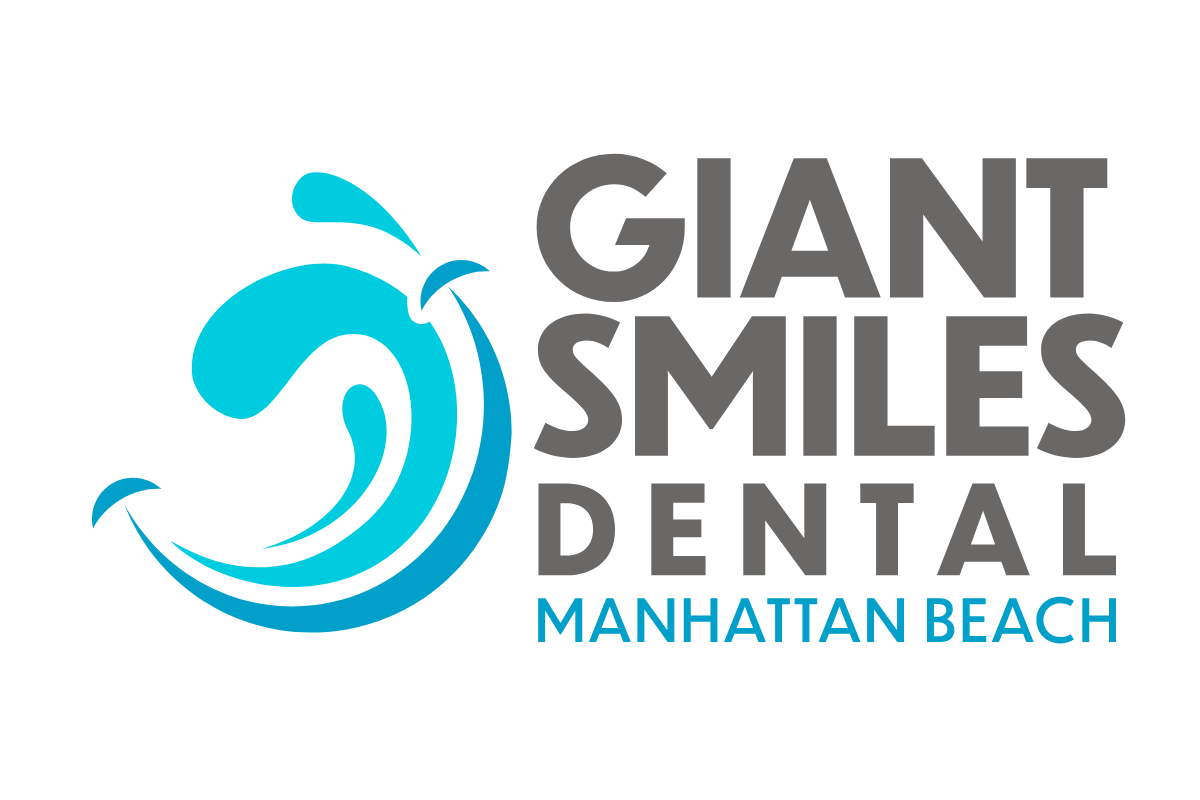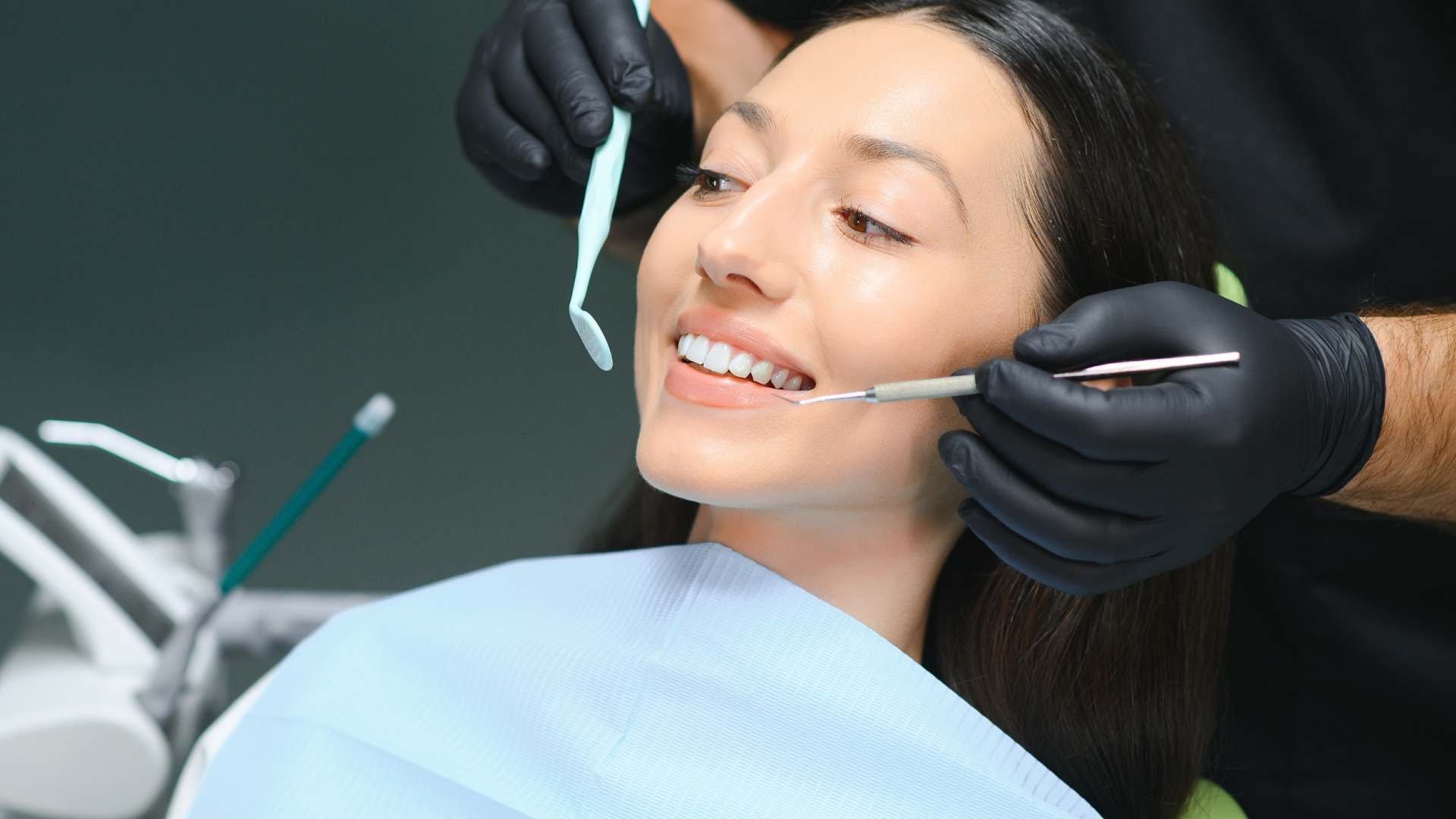Dentist vs Dental Hygienist: What's the Difference and Why It Matters

What can a dentist do?
Dentists are the primary care providers for your mouth. They've gone through years of schooling to be able to diagnose and treat all sorts of oral health issues. Think of them as the general practitioners of the dental world, but with specialized knowledge of everything that goes on in your mouth.
Dentists at Giant Smiles Dental are qualified to perform a wide range of Dental Services, including:
- Diagnosing and treating tooth decay, gum disease, and oral cancer.
- Performing root canals, extractions, and other surgical procedures.
- Placing fillings, crowns, bridges, and dentures.
- Offering cosmetic procedures like teeth whitening and veneers.
- Providing preventative care, such as cleanings and fluoride treatments.
Dentists are also trained to read X-rays, prescribe medications, and provide guidance on oral hygiene practices. They can also spot issues that might be related to other health problems, like diabetes or heart conditions, and refer you to the right specialist if needed. Basically, they're your go-to person for anything and everything related to your teeth and gums.
What can a dental hygienist do?
Dental hygienists are key players in keeping your mouth healthy. They work closely with dentists at places like Giant Smiles Dental to give you the best care possible. Their main goal is to prevent dental problems and keep your gums and teeth in great shape.
Here's a quick rundown of what they do:
- Cleanings: They remove plaque and tartar buildup, which helps prevent cavities and gum disease. They're super thorough!
- Exams: They check your mouth for signs of problems like gum disease or cavities. They're like the first line of defense.
- Education: They teach you how to take better care of your teeth and gums at home. They'll show you the best brushing and flossing techniques.
- X-rays: They take dental X-rays to help the dentist see what's going on beneath the surface.
- Fluoride: They apply fluoride treatments to help strengthen your teeth and prevent decay.
Think of dental hygienists as your partners in oral health. They're there to help you keep your smile bright and healthy for years to come. They play a vital role in preventing dental issues before they become big problems.

When should I visit a dentist?
Knowing when to see a dentist is important for maintaining good oral health. Regular check-ups can catch problems early, before they become serious. But sometimes, you need to see a dentist sooner rather than later. Here's a quick guide to help you decide when to schedule an appointment with Giant Smiles Dental.
- For routine check-ups: It's generally recommended to see a dentist every six months for a cleaning and exam. These visits help prevent cavities and gum disease.
- If you experience pain: Any toothache, sensitivity to hot or cold, or jaw pain should be checked out by a dentist. Don't wait for the pain to go away on its own.
- If you notice something unusual: This includes things like bleeding gums, sores in your mouth, or changes in the color or texture of your gums or tongue. These could be signs of a more serious problem.
Ignoring dental problems can lead to bigger issues down the road. Early detection and treatment are key to keeping your smile healthy and bright. If you're looking for a reliable dentist in manhattan beach ca, consider scheduling a visit with us. We're here to help you maintain optimal oral health.
- If you have a broken or chipped tooth: A dentist can repair the damage and prevent further complications.
- If you need a filling or crown: If you have a cavity or a damaged tooth, a dentist can restore it with a filling or crown.
- If you're considering cosmetic dentistry: If you're unhappy with the appearance of your teeth, a dentist can discuss options like teeth whitening, veneers, or orthodontics.
It's always better to be proactive when it comes to your dental health. Don't hesitate to contact Giant Smiles Dental if you have any concerns or questions. We're here to help you achieve and maintain a healthy, beautiful smile.
Will a dentist ever do a deep cleaning?
Yes, dentists absolutely perform deep cleanings, also known as scaling and root planing. It's a common procedure, especially when gum disease is present. Think of it as more than just a regular cleaning; it's a therapeutic treatment to get your gums back to health.
Dentists are fully qualified and trained to carry out deep cleanings. At Giant Smiles Dental, our dentists often handle more complex cases or when additional dental issues need attention during the cleaning process.
Here's what you should know:
- A deep cleaning targets plaque and tartar buildup below the gumline.
- It helps to reduce inflammation and prevent further bone loss.
- Local anesthesia is often used to keep you comfortable during the procedure.
Deep cleanings are important because they address the source of gum disease. Regular cleanings maintain surface cleanliness, but deep cleanings go further to remove bacteria and infection from the pockets around your teeth. This helps prevent tooth loss and other health problems linked to gum disease.
After a deep cleaning, you'll likely need more frequent check-ups to monitor your gum health. We'll also give you specific instructions on how to care for your teeth and gums at home to maintain the results of the cleaning. It's a team effort to keep your smile healthy!
Wrapping It Up: Dentists and Hygienists
So, there you have it. Dentists and dental hygienists play different but important roles in keeping your mouth healthy. Dentists handle the big stuff, like fillings and extractions, while hygienists focus on cleaning and prevention. Knowing who does what can help you feel more comfortable during your visits. It’s all about teamwork in the dental office, and understanding these roles can make your experience smoother. Next time you sit in that chair, you’ll know exactly who’s doing what and why it matters for your smile.






